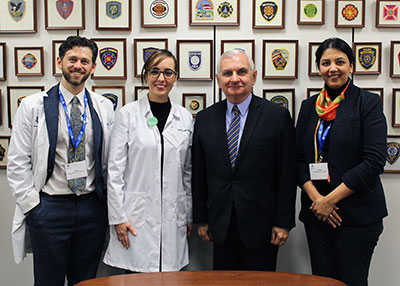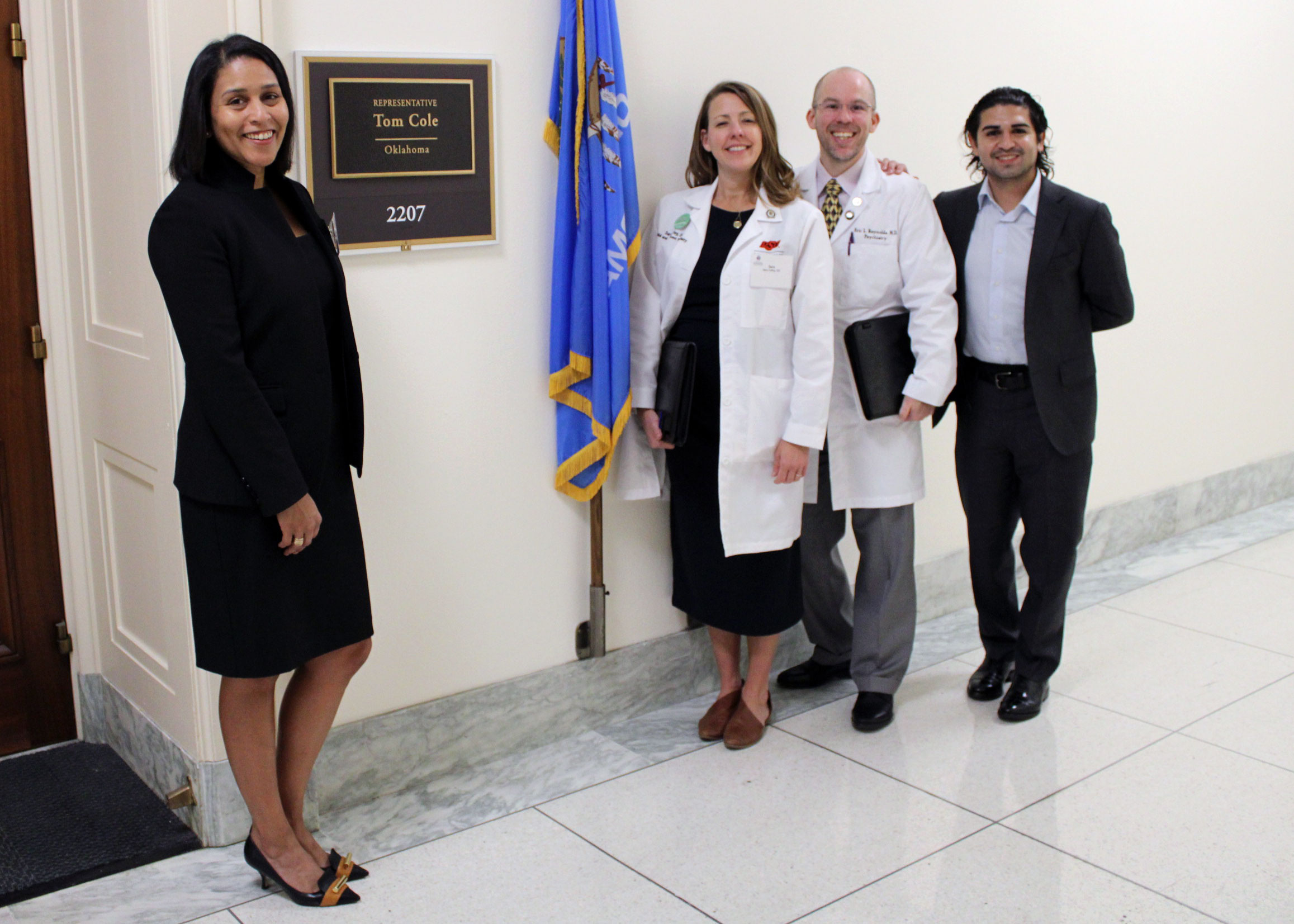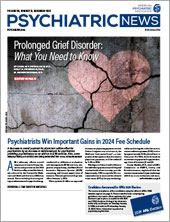Few understand the impact that the ongoing psychiatrist workforce shortage has on patients more than psychiatrists themselves. “We witness firsthand how the shortage is affecting our patients and impacting our practices,” said Camila Cosmo, M.D., Ph.D., as she stood in the halls of the Hart Senate Office Building in October. “It is crucial that we share these experiences with those who hold the responsibility of effecting change.”
Cosmo was one of more than 150 APA members who participated in APA’s two-day Federal Advocacy Conference in Washington, D.C. Her first time at the event, Cosmo and two of her colleagues from Rhode Island spoke with Sen. Jack Reed (D-R.I.) about some of APA’s advocacy priorities. Cosmo is an assistant professor of psychiatry and human behavior at Brown University and councilor at Rhode Island Psychiatric Society.
“It is important for us to live up to our responsibility as doctors and advocate for our patients and our profession. APA is our professional home, and there’s no better way to do it than through our professional organizations,” said Tanuja Gandhi, M.D., who joined Cosmo and Joshua Wortzel, M.D., in the meeting with Reed. Gandhi is an assistant professor of psychiatry at Brown University and president of the Rhode Island Psychiatric Society. Wortzel is chair of APA’s Committee on Climate Change and Mental Health.
On the first day of the conference, attendees heard from APA leadership, learned tips and suggestions from congressional staff on how to effectively advocate, were briefed on key issues by APA staff, and heard from staunch federal champions Rep. Jamie Raskin (D-Md.) and
Sen. Chris Murphy (D-Conn.), who received the Javits Award.
The following day, APA members spent the day on Capitol Hill meeting with senators, representatives, and their staffs to discuss some of the most pressing issues in psychiatry, such as the barriers many patients face in trying to access the care they need. The issues they discussed included the following:
•
Behavioral health integration: Integrated care models can play a hugely important role in improving access to mental and substance use disorder care for individuals across the country. APA members urged lawmakers to support the COMPLETE Care Act (
S 1378/
HR 5819), which incentivizes primary care practices to adopt behavioral health integration such as the evidence-based Collaborative Care Model.
•
Health equity and maternal mortality: As the leading cause of maternal mortality, mental health and substance use disorders are associated with numerous adverse outcomes for both mothers and their babies. APA members urged lawmakers to support the Moms Matter Act (
S 1602/
HR 3312), which would establish the Maternal Mental Health Equity Grant Program and invest in diversifying and growing the maternal mental health workforce. They also encouraged lawmakers to support the Preventing Maternal Deaths Reauthorization Act (
S 2415/
HR 3838), which would ensure continued support for maternal mortality review committees.
•
Supporting and enhancing the psychiatric workforce: To address the ongoing mental health professional shortage and improve access to care, APA members urged lawmakers to support numerous pieces of legislation: The REDI (Resident Education Deferred Interest) Act (
S 704/
HR 1202), which would allow borrowers to qualify for interest-free deferment on their student loans while in medical training; The Mental Health Professionals Workforce Shortage Loan Repayment Act (
S 462/
HR 4933), which would qualify mental health practitioners for the loan repayment program approved five years ago in the SUPPORT Act; The Resident Physician Shortage Reduction Act (
S 1302/
HR 2389), which would increase the number of Medicare-oriented graduate medical education positions by 2,000 a year for seven years; and the Conrad State 30 and Physician Access Reauthorization Act (
S 665/
HR 4942), which would extend the Conrad State 30 program for three years, allowing states to request J-1 visa waivers for up to 35 foreign physicians per state/per year to work in areas with a shortage of physicians.
Yesul Tina Kim, M.D., said the psychiatrist shortage has become more apparent with each year of her residency. She’s a PGY-4 resident at the Icahn School of Medicine at Mount Sinai. “It falls on teaching hospitals and resident clinics to see the population of patients who receive Medicare and Medicaid, and our waitlists are getting longer and longer,” she said. “There comes a point where I alone can’t work any harder or more efficiently. It becomes a question of, How do we protect learning, give people excellent care, and address this shortage crisis?”
Kim said it felt empowering to get out of the clinic and think about the problems that residents like her are facing from the federal level. “I’ve been lucky that my program prioritizes resident wellness, but this is a systems issue. It’s nice to come here and think about how to address what we’re experiencing, and to learn about the different options there are to make improvements,” she said.
Throughout the conference, APA members like Sara Coffey, D.O., director of child and adolescent psychiatry at Oklahoma State University, emphasized the importance of sharing their stories from clinical practice with lawmakers. “It’s imperative for us as physicians to make sure we’re supporting our patients, and that means coming here and sharing their experiences with the people who can impact their lives on a broad scale,” Coffey said. ■


